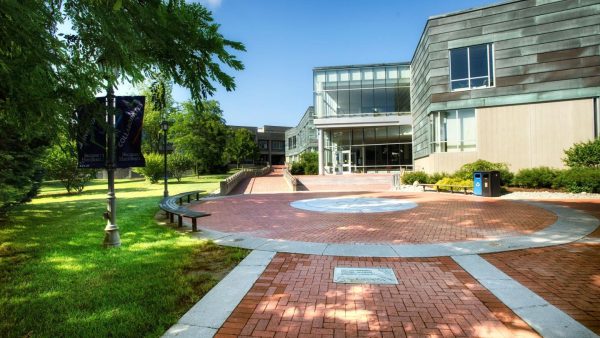
The ground under our feet is constantly shifting, and the cliff face is fast approaching those of us about to graduate. Tertiary education is, by nature and by intention, a transitional period in the lives of those who choose to put themselves through it. Unless one can secure a job immediately after graduation, which in this economic climate seems like an increasingly Panglossian proposition, stability achieved in such a phase will necessarily be difficult to carry over into the next.
That is not to say that Hamilton itself is necessarily the culprit. Even after considering their considerable flaws, the modern university remains a remarkable institution. The sheer variety of material available for study is easy to take for granted, but when one takes the time to consider for just a few minutes how many pathways are open—particularly at an institution such as Hamilton, which allows for considerably more flexibility due to its open curriculum—it becomes all the more apparent how fortunate we truly are to have all these opportunities before us. However, this vast catalogue is a double-edged sword at times. Sometimes it can be too late to pursue a passion found later in one’s college career. Perhaps one takes an interest in linguistics or literature too late to explore them as a college student.
This concept rings true for personal matters as well as academic ones. Loose ends will inevitably fail to tie themselves up. Interpersonal resolution often takes time to find or to develop, a plea to which the strictly periodized college experience must turn a deaf ear.
I have been reckoning with these questions as a senior soon to graduate. It is all too easy to despair as one reaches the end of one’s own college journey, haunted by all the paths not taken, confessions still unrevealed, conflicts yet to abate and dissolve into tears of reconciliation. How are we to cope with this?
Firstly, our bonds are not as transitory as our experiences. I know people who have parted ways with their old college friends, and others that have maintained close bonds all the while. Our relationships evolve, some wither, but always in accordance with the needs of each moment down the road. While I am disposed toward fatalist thinking in this matter, my interactions with those who mean the most to me on campus have redirected me onto the path of hope. Where there is a will, they say, there is a way. The bonds we must ultimately save from atrophy will be the ones to endure. Making explicit efforts to strengthen the bonds one hopes to keep beyond college, however, can hardly hurt.
Secondly, while the lens for free academic exploration may be soon stolen from our eyes by time, we are not sequestered from knowledge, even if we enter into the rat race. Graduate school is an option, of course, but the economic reality of further post-secondary education may be disqualifying for some seniors. Within a particular field, one can pinpoint further areas of exploration based on the courses one has already taken, but what about areas of interest that lie beyond those one has already explored? Reaching out to—or even developing interpersonal connections with—professors on campus offers a way to continue learning without relying upon one’s own independent research, which is inherently prone to misdirection without the guidance of an experienced hand.
Finally, the closing of this particular book leaves the freedom to style its final pages as one sees fit. When it comes to taking chances, there are no more long-term risks, only potential regrets. For the risk-averse among us, such a concept may seem utterly foreign; I raise my hand and volunteer as an example of one who rarely looks to put himself in any potential line of fire. Yet the doors of Hamilton’s metaphorical architecture are creeping ever nearer to their close, so why not peer behind them and chase what seems worthwhile?
This sun is setting. Let us seize this one, bottle what we can, take with us what we remember and wait for the next one to arise.
